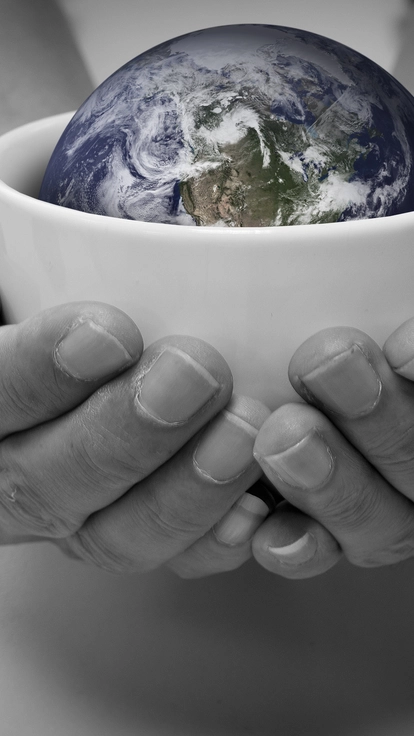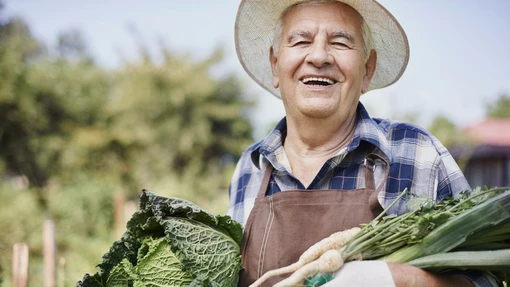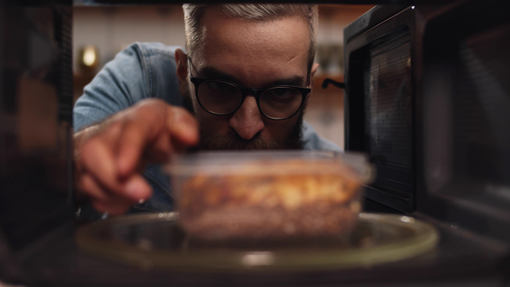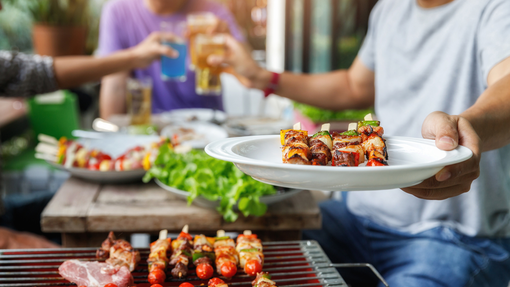Our planet, your food
How does my food impact climate change? Let’s take a closer look.

What is climate change?
Climate change in a nutshell means long-term changes to the Earth’s weather patterns and temperatures.
The resources we use to fuel modern life: to heat our homes, clothe ourselves, travel where we need to be, and get food onto our plates – contribute to greenhouse gases being released into the Earth’s atmosphere. These gases – carbon dioxide being a key one – release heat and change the Earth’s temperature, weather and the climate we experience.
These increasing temperatures are leading to rising sea levels, flooding, wildfires, polar ice melting and extreme weather events that put habitats, wildlife and humans at risk.
Climate change buzzwords
What do these buzzwords mean?
-
Greenhouse gases
These are gases – like carbon dioxide and methane – which release heat into our atmosphere. This then warms up the Earth’s temperature.
-
Carbon or greenhouse gas emissions
The amount of gases released into the atmosphere – for example, by the use of fossil fuels which release carbon dioxide into the environment, or when food waste rots and releases methane gas.
-
Carbon footprint
The amount of carbon dioxide released into the atmosphere by day-to-day activities. Around food, these might be during the production of our food, and the transportation of our food. (Learn more about this below!)
-
Food waste
Food that is wasted, lost or uneaten along all parts of the supply chain - from farm, to production, to supermarkets and in our homes.
tonnes of CO2 are generated by UK homes from the wasted consumable food and drink
How does my food feed climate change?
You may have heard that food has a big environmental impact. But how does the odd overripe banana or stale loaf of bread being binned harm our planet? Let’s get into the impact throwing food away has on the planet.
When looking at why food waste harms the environment, it’s important to look at the whole lifecycle of our food: from farm, to fork, to the bin. Each stage in the journey of our food draws resources from our planet and produces greenhouse gas emissions, therefore contributing to climate change.
If we can make sure only the food we are going to eat reaches our homes, and no good food ends up in the bin, we could save the emissions created producing that food from ever needing to be created in the first place.
Ensuring you use up all of the food you buy and let none of it go to waste is a key way to reduce your carbon footprint and help tackle climate change.
Carbon emissions & our food
Follow the carbon emission journey of our food to our plates:
-
The land we use to grow our food
This could range from deforestation (removing trees which take carbon out of the atmosphere) to a farmer ploughing a field ready to plant crops (which releases greenhouse gases).
-
Growing our food
Fertilisers, animal feed, tractors and farming equipment, harvesting, transportation: there’s an awful lot of effort, time and resources involved in producing our food, across the world.
-
Processing our food
For example, turning potatoes into oven chips or wheat into bread, in factories.
-
Getting our food to shops, markets or to our door
Whether you shop online, at the supermarket or your local market: the food you buy has been transported there – most likely from around the world.
-
Preparing food at home
Cooking our food also has an impact: fuelling our fridges and freezers, ovens and microwaves.
-
Throwing food away
When we throw food away, it rots and releases methane, a greenhouse gas, into the atmosphere: whether that’s in our compost bin, food caddy or landfill. Methane has more than 80 times the warming power of carbon dioxide.
In the UK, less than 1% of carbon emissions related to food comes from this final step: when it ends up in the bin. But, a large amount of greenhouse gases has already been released during the journey of food from farm to your plate - only for it to end up in the bin.
Learn more about food waste and climate change
There are a huge number of organisations across the globe doing their bit to tackle climate change, and help make food waste a thing of the past.
Here are links to some great resources that will help you learn more.
WRAP - the charity that runs Love Food Hate Waste
Make a difference and save food
Let's be realistic: sometimes we are so busy that thinking about how to save food at home often falls to the bottom of our list. Instead of trying to overhaul your food habits in one day, let's take action together in bite-sized chunks.

Adopting some simple food habits into your usual weekly routine will remove a lot of the stress around food, saving you both time and money - while shopping and at home. It'll also ensure your food is eaten and not binned!

Our handy guide offers tips for saving time in the kitchen and the supermarket, whilst saving money too. Can you afford not to read it?





